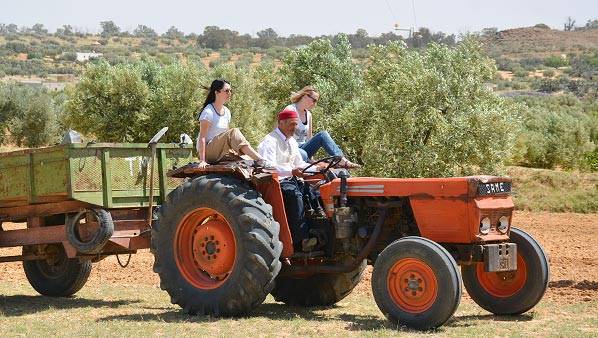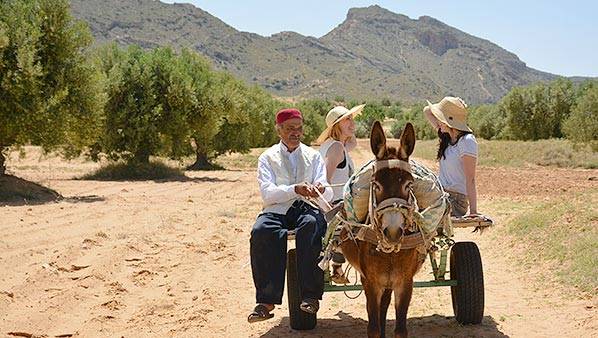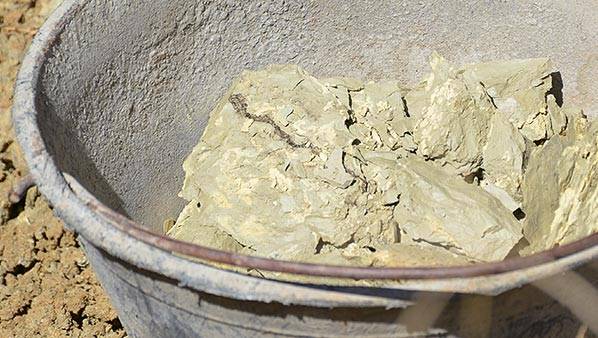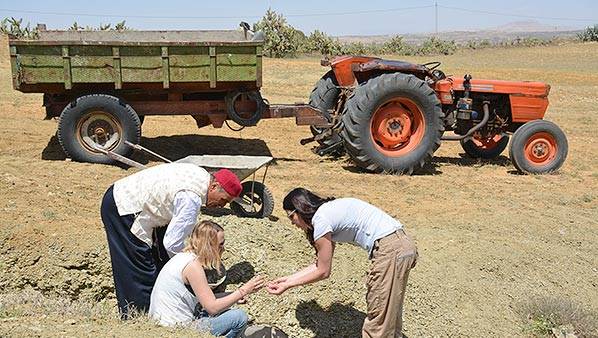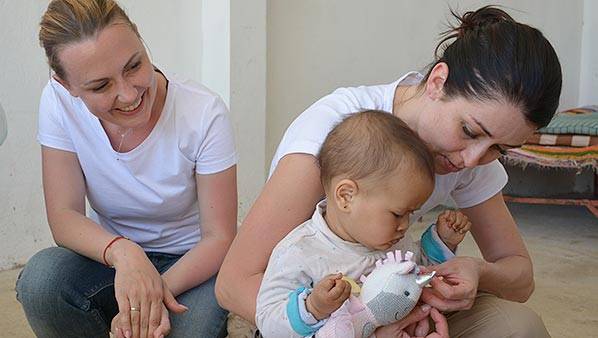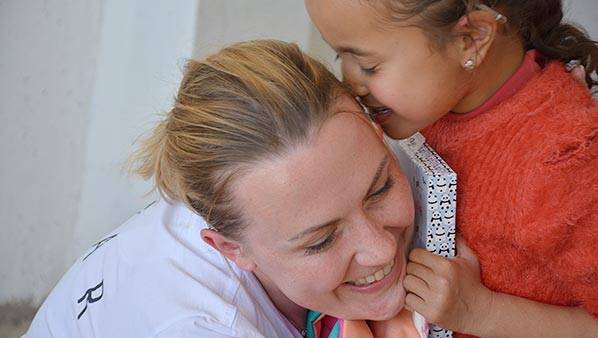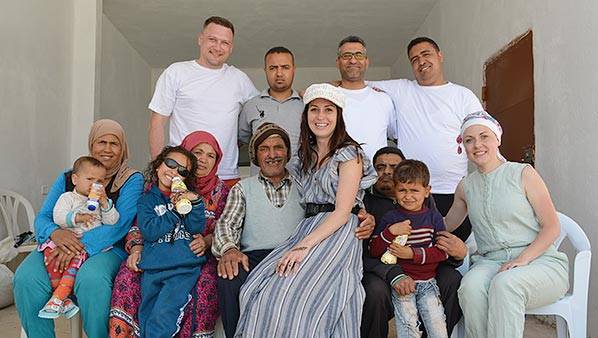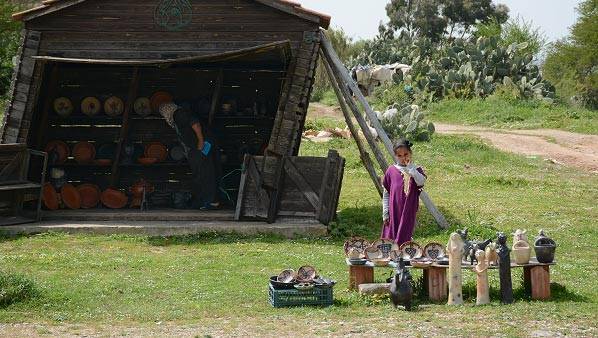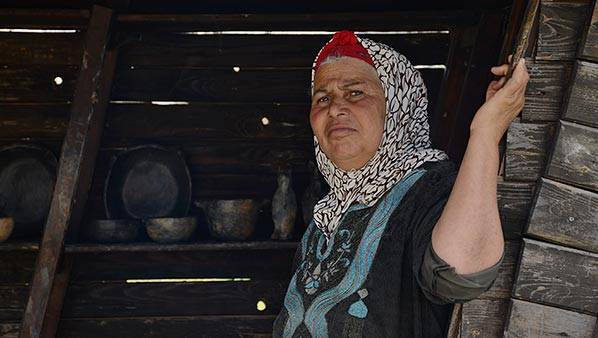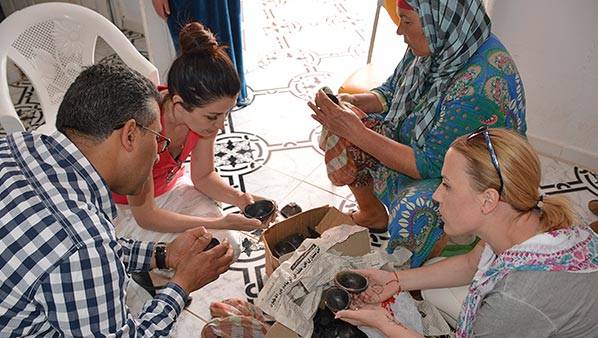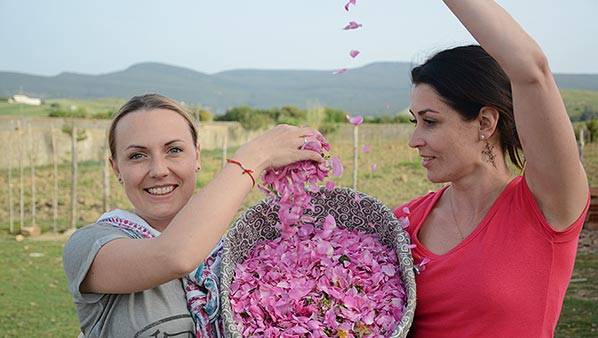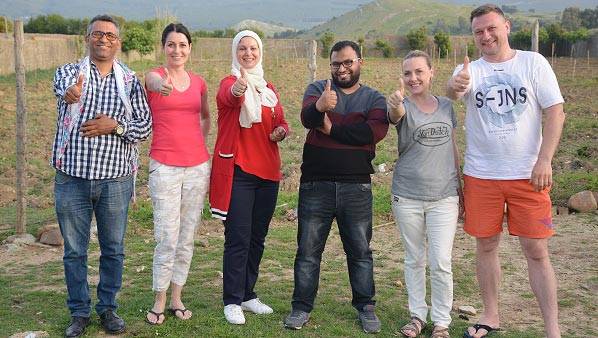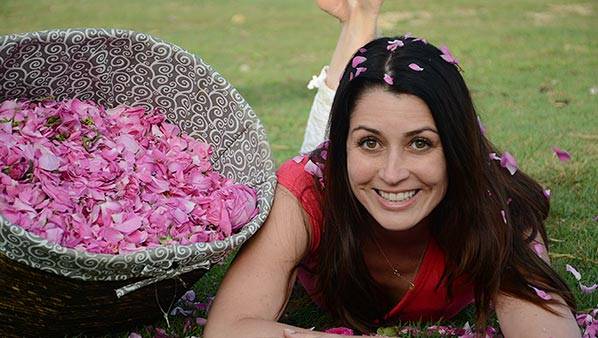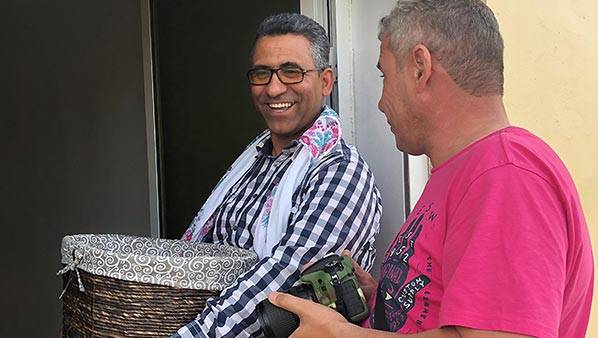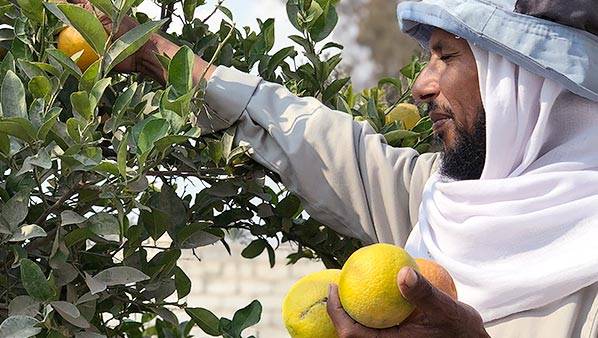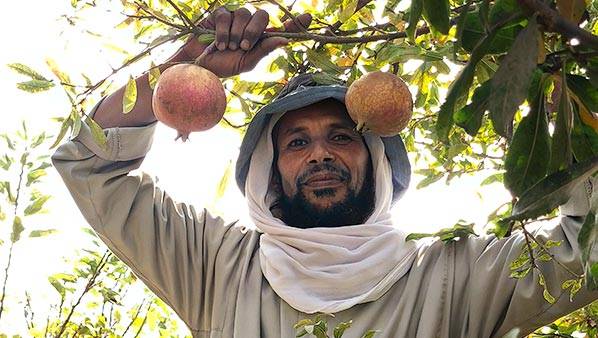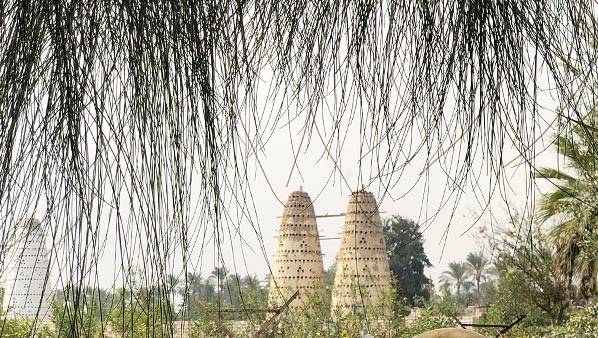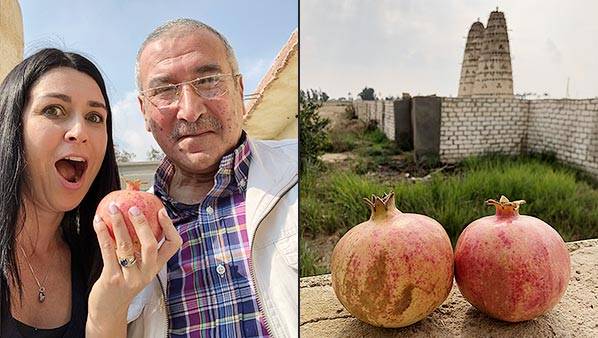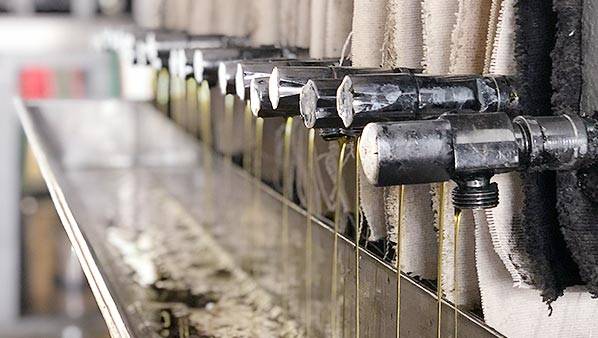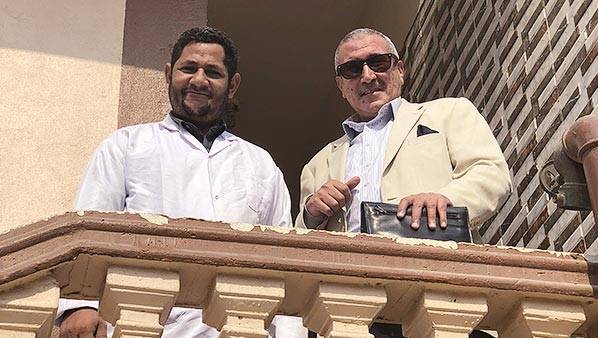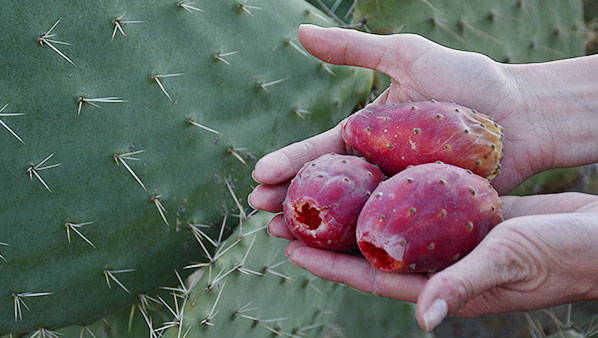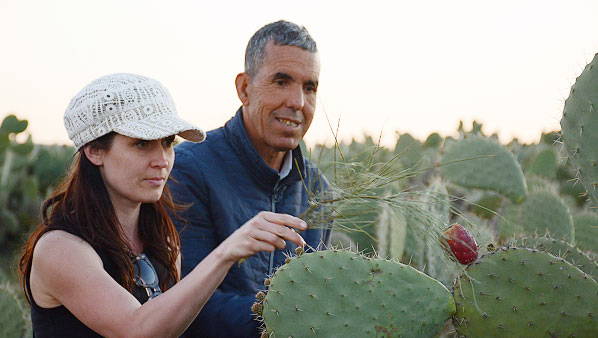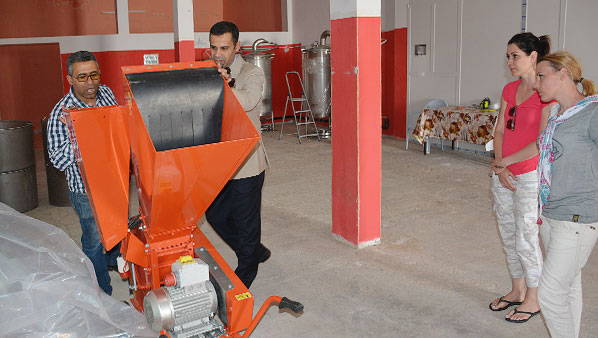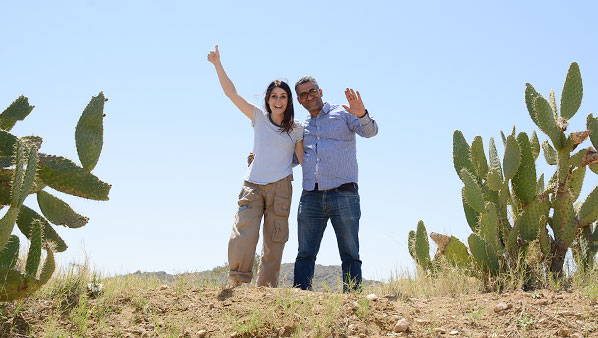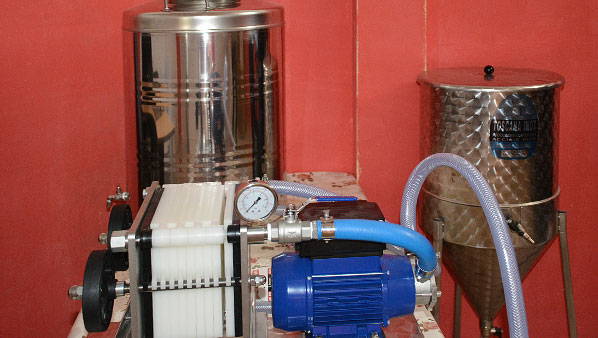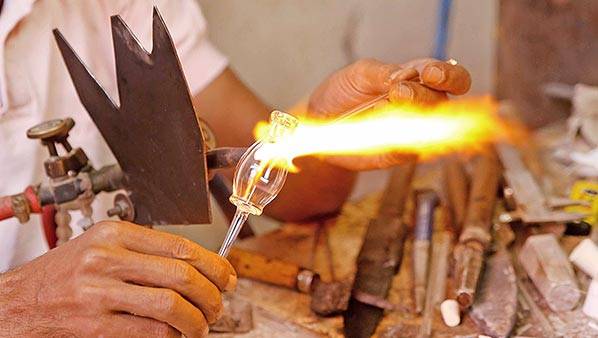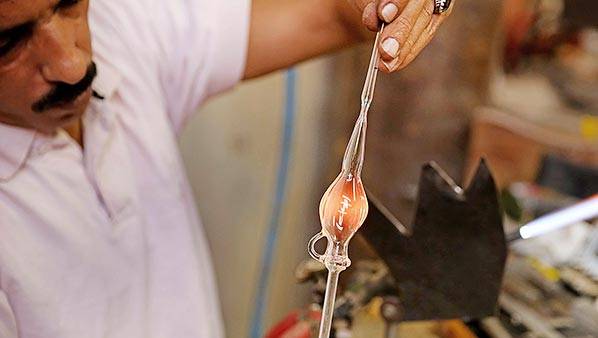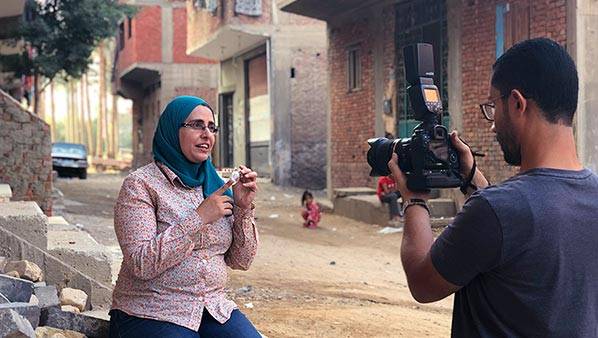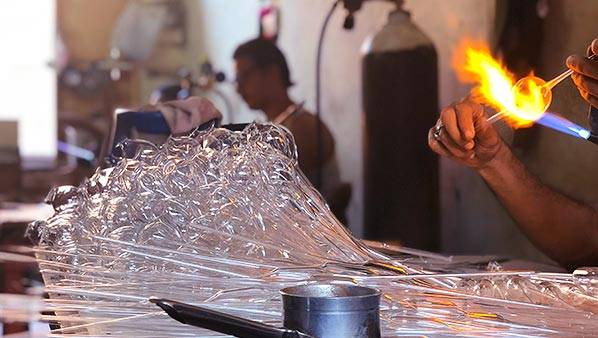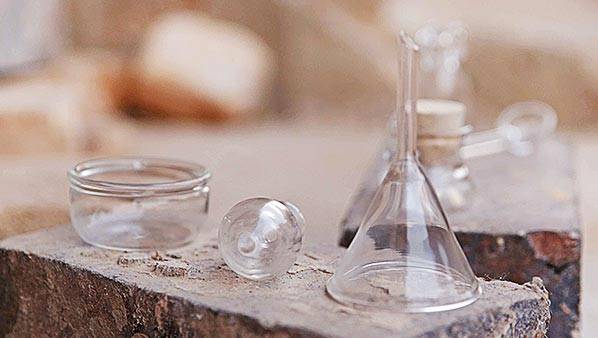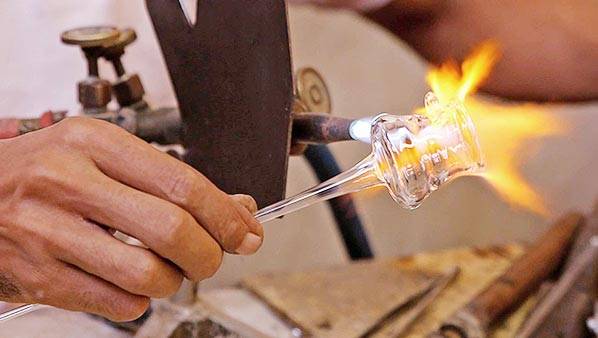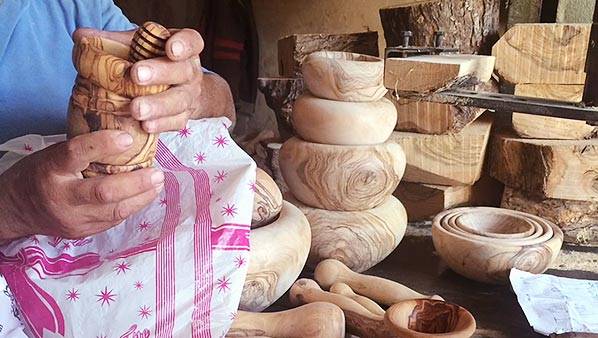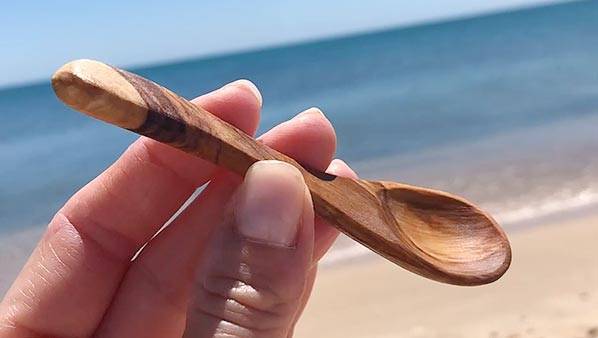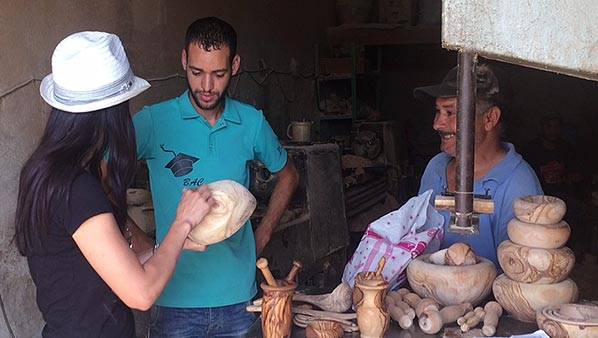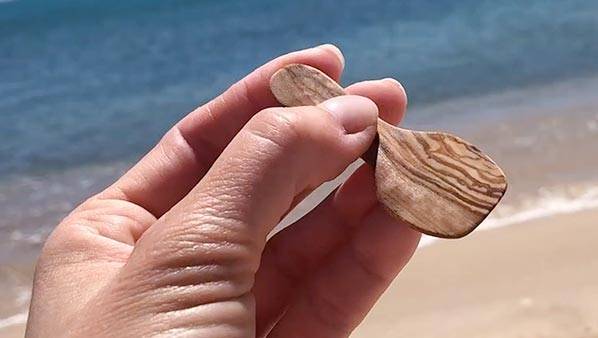🎁 Free U.S. Shipping ON Orders $25+. Code: welcome15 for 15% OFF first order.

Mohamed
Argil Green Clay
It takes hours of driving through a dirt road and through a little sandy canyon to get to his home. It is truly a little paradise in the foothills of Atlas Mountains. Mohamed and his entire extended family has lived here for generations surrounded by acres of olive trees, beehives, a chicken coup, a flock of sheep, and of course, a huge underground deposit of rare green clay that estheticians who use it cannot stop raving about.
Mohamed is not really an artisan. He is just a simple man, a farmer, living a simple sustainable life with his family. He works his land, makes the most incredible olive oil (green and almost thick) and loves having his tea in the evening. His wife cooks most delicious couscous that is hard to stop eating - it is spicy and full of flavors of fresh spices and veggies.
And then there are kids and grandkids who live the same sustainable lifestyle, making no waste, using no plastic and enjoying what Mother Nature allows them to grow in this beautiful and remote part of the country. Mohamed does not speak English and my Arabic is pretty poor but communicating has always been easy, as long as we eat everything his wife prepares for us. This makes everyone happy!
Emna
clay Pottery
This village has is a stork invasion ... but a happy one. Hundreds of them make this village their home. They say, that storks make nests only in the cleanest and purest of places, so this village in the Mediterranean Tunisia must be a happy place for storks. And it is the same village where Emna and dozens of other villagers make most unique pieces of pottery, protected by UNESCO as one of the most ancient crafts.
There is nothing simple or easy about making this style of pottery. It takes hours to make each piece. Artisans shape every piece by hand without a pottery wheel and handpaint each piece before firing it in low temperature fire. The pottery is perfectly imperfect with chips, dents and scratches, which are all intentional, making each piece of art looking antique and precious.
Earthenware is a good word for this pottery, because it feels like it was made of earth and fire with love and warmth of the ancient Mediterranean culture.
Emna, our master pottery maker, has been making pieces of clay art for decades. She is not on social media and she has a very old flip phone. The road to the village where she lives never sees tourists unless they got lost. So Emna sells her pottery on local markets or hopes for pottery enthusiasts who scout villages (like our team at Katari) to find her and commission her work for the world to see.
We hope that by sharing this unique craft with the world through your support, we can help Emna and other villagers to continue making their beautiful pottery pieces and passing this unique craft to their kids.
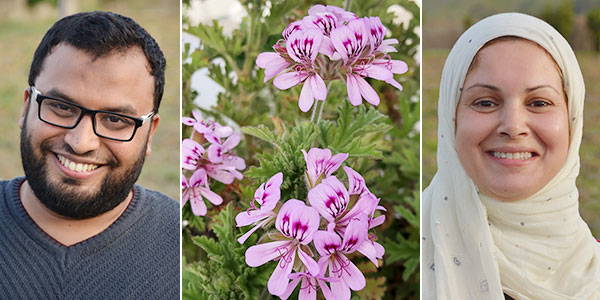
Amin & Wafa
Flower waters
Artisan usually means someone skilled in a specific craft. And it is true for our team of flower water makers, Wafa and Amin. But they took this craft of flower water distillation to a level of science. Amin holds a Ph.D. in Flower Water Distillation and Wafa holds a Masters Degree in Processes. We are fortunate enough to work with the artisans who teach other artisans how to distill most decadent flower waters (or hydrosols).
When Amin does not make flower waters, he travels around the country and helps women in remote Tunisian villages learn the craft of vapor-distillation so that they can form their own co-ops and make products they can use, trade with or sell on local markets.
Wafa is not only a business partner and a master flower water maker, she keeps the entire flower water enterprise running smooth, keeping up and expanding the gardens where more plants for future distillation are set to grow. And she makes the best homemade cookies (Tunisian sweets are seriously the best in the universe, if you have not tried them).
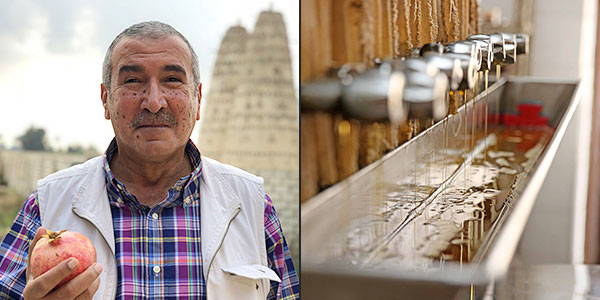
Amr
Oil Maker
Amr does not say much. He does not brag. He does not tell you right away that he comes from generations of oil makers. He should brag though because his team pressed the best, most colorful and most concentrated freshed oils. When visiting Amr's facility the first thing that you see is how genuinely happy everyone is. You cannot fake happy. People have been working with Amr for decades. It tells you something. And when the oil is not only cold-pressed but cold-pressed with love, smile and to a happy song, we feel that oils energized with such love and positivity do even more good for you.
The art of cold-pressing oils is hard. Imagine taking a dry piece of paper and trying to squeeze some water out of it. You need to have a ton of paper to get even a few drops of 'paper' oil. Same goes for cold-pressing of vegetable and fruit seed oils. The seeds are first dried completely and then pressed without ever elevating the temperature or adding liquids, which both kill the vitamins in oil.
Another reason what Amr does is amazing, because it is truly small batch. We asked to set aside a few gallons of oil for us and he refused. He said he does not store oils. If you want an oil, he presses it fresh. Period. WOW. Fresh. Every time.
The seeds he gets from small farms south of Aswan, where sustainable farming has been practiced for thousands of years. Each batch of seeds you get is not the same, as trees are not the same. Like pomegranates range from orange to deep red in color and black castor beans when roasted result in oil anywhere from beige to bluish purple. We learn so much from Amr.
And when he is done working, he goes to his little farm retreat just an hour south of Cairo. It feels like you just went back a few millenia with air fresh, a table filled with fruits and freshly baked flat bread, eggs and tahini with black honey... yum.
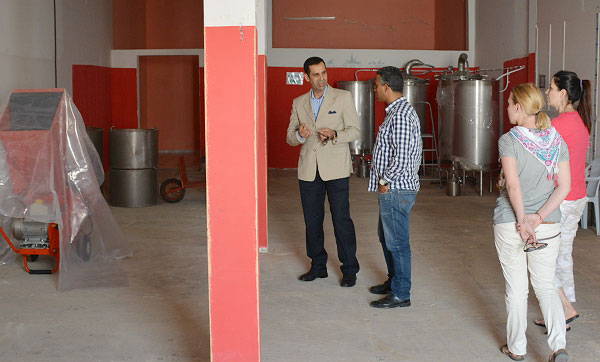
Tarek
Barie Oil
Yes, Tarek only makes one oi - prickly pear cactus seed oil or Figue de Barbarie oil (hence the name, Barie). The reason this Ph.D. in particle physics and professor in a Tunisian University chose this oil is because he understands that it is the best oil in the world, the most powerful against aging and why even bother making any other products when this one is the best?
Tarek always wears a suit and a tie and even in blistering heat, he is incredibily put together, speaking perfect English, French and Arabic and showing with pride the highest end equipment to process and press the seeds of the wild-grown cacti.
It is not a simple process to make the 'queen' of oils. It takes 8 tons of fruit to make just 1 liter of oil. A true prickly pear cactus seed oil cannot be cheap. The cheaper ones use fruit, not the seeds, or do not cold-press or mix it with cheaper carrier oils. Unfortunately we have seen it all on the market. Knowing, trusting and respecting the maker is the only true way of getting the 'real stuff'.
Tarek and his team go to the forest of wild-grown cacti, taking care to avoid being attacked by wild hogues who love roaming there. Each prickly fruit needs to be brushed with wild grass to get rid of the tiny prickles. Then pulp gets extracted from the fruit, gets dried and seeds are separated and dried.
After the oil is pressed it needs to sit for about a month to settle, to collect the purest golden, sediment-free oil.

Lamyaa
Handblown Glass
A woman glassmaker in Egypt who runs a business managing dozens of glassmakers, all of whom are men... Yep, she does it all with grace, impeccable communication, always overdelivering. We are not sure she ever sleeps either, for she always responds right away. Always.
With a Masters in Marketing and coming from a family of glassmakers, Lamyaa creates traditional Egyptian glass ornaments and Katari handblown glass - something her team has never done before.
To cross Cairo to get to Lamyaa's workshop can take hours. Traffic there is real. Once you get to a semi-finished building next to a field surrounded by palm trees, with a few local goats picking up scraps of food from the littered street, you will hear the hum of air and fire and enter a narrow place with front door open, where glassmakers sit at their stations on both sides surrounded by piles of glass and music streaming from an old radio. This is just one workshop.
You have to travel to a different part of Cairo if the glass needs to be handpainted or frosted. This are trips that Lamyaa takes daily to keep her operation going.
There are a lot of amazing things about Lamyaa and her team. What was impressive is when Ali, our main glassmaker saw Katari sketch of a jar. He looked at it for a second and waived to closed the book with the drawing. A minute later he had a perfect freshly handblown glass jar in his hands. That was a wow moment for us.
It took us years to refine the process and the specs for Katari glass and we continue to work with Lamyaa's team to make beautiful works of glass art.

Idriss
Olivewood
Olivewood is pretty special for Idriss. He carves accessories out of it, sells them globally and lovingly plants more tiny olive trees that will become mature producing olive trees in a few decades. He talks about reducing waste, about peace on Earth, less war and more sustainable choices in life. He is a true humanitarian and a person of a huge heart.
What makes his craft sustainable for many centuries is that olive trees only produce olives for a few decades and then old trees become accessories and new trees grow right next to them to continue the circle of life.




